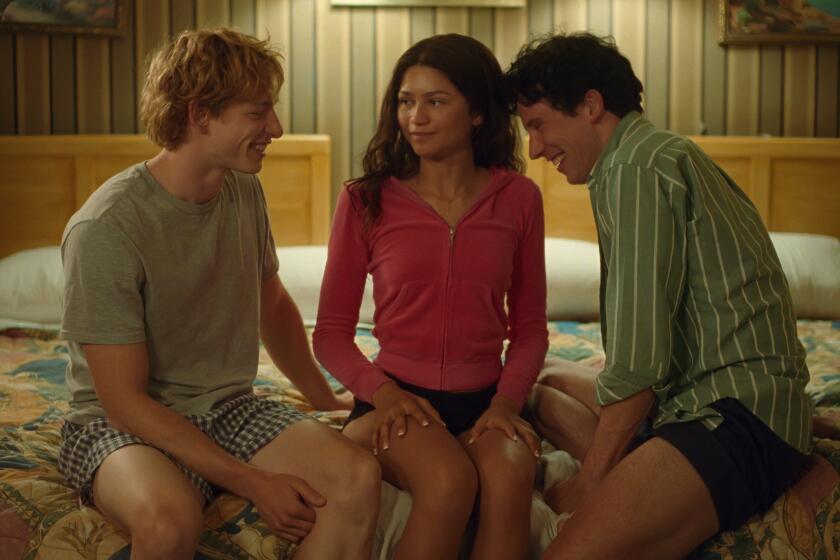Networks Get Pep Talk on Kids’ TV
Federal Communications Commission Chairman Reed Hundt delivered a pep talk here Tuesday to television industry leaders concerned about how to meet a requirement to carry three hours a week of educational programming for children.
But despite the cordial atmosphere of the meeting, some in attendance left frustrated, concerned that Hundt, who was invited to address the group, did not deliver concrete answers on how best to meet the mandate without suffering a drop in ratings.
Hundt told the executives from the four major broadcast networks and Hollywood studios that he had confidence that they would be able to provide programming that would be both educational and entertaining, and that kids would want to watch.
“I am here today to challenge you to reach for the stars,” Hundt said at the meeting, which was sponsored by Children’s Action Network and Mediascope and was held at DIC Entertainment in Burbank. “I know this room is filled with people who have the talent, imagination and creativity to create shows that expand the horizons of all children--and not a few adults.”
Hundt added: “And if you produce them, the eyeballs will come. And if you promote them, these eyeballs will return. And if you air them during prime time, young eyeballs will bring along adults.”
Under the FCC’s new rules, TV stations must begin airing by next fall at least three hours a week of programming “specifically designed to meet the educational needs of children under the age of 16,” with education being a “significant purpose” of the shows.
Advertisers and network executives have recently complained about a slump in ratings for their children’s programming, while the ratings for Nickelodeon have climbed. Cable outlets are not bound by the three-hour mandate because they are not under the FCC’s jurisdiction.
Some of those at the meeting said the rules will put broadcasters at a disadvantage in trying to compete with cable outlets. They complained that Hundt failed to focus more on that reality and that he did not allow enough time for discussion, taking up most of the session with a prepared speech while ducking questions.
Robby London, executive vice president of creative affairs at DIC, a leading supplier of children’s programming, said: “There does seem to be this dichotomy. On one hand, Hundt and the FCC are taking a very laissez-faire approach to this, saying the broadcasters should handle this in the best way they know how. But then there is this mandatory code they must adhere to.”
Said another participant who asked not to be identified: “You can’t have it both ways. Everyone is agreed about the goals and about enriching lives. But how do you do it? We’re at a tremendous disadvantage.”
More to Read
The biggest entertainment stories
Get our big stories about Hollywood, film, television, music, arts, culture and more right in your inbox as soon as they publish.
You may occasionally receive promotional content from the Los Angeles Times.











